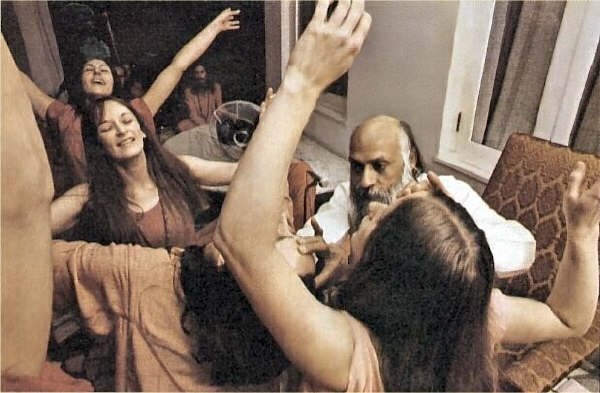God is beyond knowledge, it is intrinsically unknowable. The very effort to know it is a barrier in knowing it, because we can know something only if we are separate from it. Knowledge requires a division, the division between the object and the subject.
Knowledge requires a kind of distance between the knower and the known, and that is not possible with god. God alone is. He is the knower and he is the known.
The observer and the observed are one, so there is no possibility to create this division which is an absolute requirement for knowledge to happen. Hence god is beyond knowledge, truth is beyond knowledge, but god is not beyond love.
Love can happen. Love does not require you to be two. In fact, just the opposite is the requirement of love. Knowledge needs you to be distant, separate; love needs you to be one — dissolving, merging, melting into each other. When somebody falls in love he starts losing his identity. The deeper the love is, the more one is lost. When two lovers are really in intimacy they are not two. In a miraculous way the two have disappeared into oneness.
Yes, it happens only for a few moments but those moments are of great orgasmic joy; they are the first glimpse of samadhi, ecstasy, satori. But love happens only when two lose their two-ness and become one. So god can be loved but cannot be known. God is within love but beyond knowledge. That's what the meaning is when Jesus says 'God is love': god is not knowledge.
And people have been trying to know god, hence the world has become god-less, because we have been trying to do something impossible, something which is not allowed by the nature of things themselves. So the more we have tried to know god, the more we have become convinced that there is no god. If we make it an absolute condition that for god to exist first we have to know him, then god will not be available for us.
The philosophical activity cannot make god available to you. The theological approach is utterly meaningless, irrelevant. The only true approach towards god is that of poetry, art, painting, love. The true religion is always the religion of aesthetics, not of ethics, not of theology. My vision is that poetry comes closest to god, music too — it comes even closer — dance too. And when two lovers are in deep embrace, utterly lost in each other, drunk with each other, are no more functioning as separate entities, breathing together, their hearts breathing in a rhythm, then god is the closest.
The real temples of god will be temples of love. Knowledge is all rubbish. And the true seeker has to gather courage to drop knowledge. By dropping knowledge the mind is dropped, and when there is no mind there is no ego, and when there is no ego, you have fallen into the oceanic unity. That oceanic experience is god, or you can call it truth or whatsoever you wish — names don't matter.
OSHO


